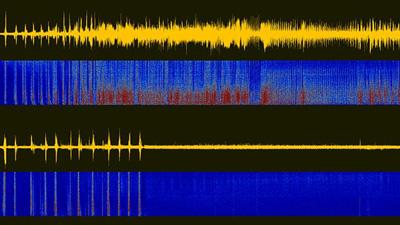Breast cancer drug suppresses dangerous brain seizures
Posted: 13 May 2016 | Victoria White, Digital Content Producer | No comments yet
Scientists also found that inhibiting oestrogen synthesis just after seizure onset strongly suppressed seizures in both sexes…


Researchers found seizure activity is strongly suppressed in the animal that received the aromatase inhibitor just after seizure onset (bottom two signals), whereas seizure activity continues in the control animal (top two signals). CREDIT: Northwestern University
A drug used to treat breast cancer has been found to quickly and effectively suppress dangerous brain seizures, according to a new Northwestern University study.
The study was conducted in a rat model of status epilepticus, a condition characterised by a prolonged episode of seizure activity.
“The effect was profound and very clear,” said Catherine S. Woolley, the William Deering Chair in Biological Sciences, professor of neurobiology in the Weinberg College of Arts and Sciences and a member of the Women’s Health Research Institute at Northwestern University Feinberg School of Medicine. “This shows that clinically available drugs could be effective therapies for suppressing seizures in humans.”
Woolley and postdoctoral fellow Satoru M. Sato also discovered, to their surprise, that seizures stimulate the production of oestrogens in the brain of both males and females and that this plays a previously unknown role in the escalation of seizure activity. Oestrogen synthesis during a seizure fuels the seizure, making it worse.
The findings suggest a new approach to treating seizures in humans: shut down the brain’s production of oestrogen when a seizure first begins. Current seizure treatments are not targeted; they work by dampening neural activity generally and come with many side effects, such as drowsiness, dizziness or difficulty concentrating.
“Status epilepticus is a neurological emergency,” Woolley said. “This occurs when large groups of connected neurons fire excessively and in synchrony for a prolonged time. Recognising that oestrogen synthesis during seizures fuels seizure activity gives researchers a specific target for therapeutically breaking the dangerous escalation cycle.”
The study builds on past work showing oestrogen increases neuronal activity via a number of mechanisms.
Inhibiting oestrogen synthesis
In their study, Woolley and Sato found inhibiting oestrogen synthesis just after seizure onset strongly suppressed seizures in both sexes, without anti-seizure drugs or other interventions. The effect was seen both in the animal’s behaviour and in hippocampal electroencephalogram (EEG) recordings.
The scientists injected male and female animals with either an inert substance or an aromatase inhibitor, either letrozole or fadrozole, just after the start of a chemically induced seizure. (An aromatase inhibitor inhibits estrogen synthesis; letrozole, or Femera, is used clinically to treat breast cancer in postmenopausal women.) They studied the animals for up to six hours and found both fadrozole and letrozole strongly suppressed seizures in both sexes.
The hippocampus is a critically important part of the brain in the initiation and propagation of seizure activity. In another part of their study, Woolley and Sato found the impact of seizures on oestrogen production in the hippocampus was surprisingly large in both sexes, showing a two- to three-fold increase during seizures.
Woolley said it is important to distinguish between seizures and epilepsy, which are not synonymous. Epilepsy, which affects about 1 percent of the population, is a condition in which a person has spontaneous recurrent seizures, often lasting only a few minutes. Status epilepticus is a more severe seizure episode, affecting about 40 people per 100,000 per year.
The overall mortality rate of status epilepticus is estimated at 20 percent, and patients who recover have an increased likelihood of subsequent unprovoked seizures, the researchers say. New approaches to acute seizure control are needed.
“Hopefully, this new study will trigger clinical trials to determine the efficacy and safety of currently available aromatase inhibitors in patients with status epilepticus,” said Dr. Stephen M. Smith, professor of medicine at Oregon Health & Science University.
Related conditions
Breast cancer, Epilepsy
Related organisations
Northwestern University



